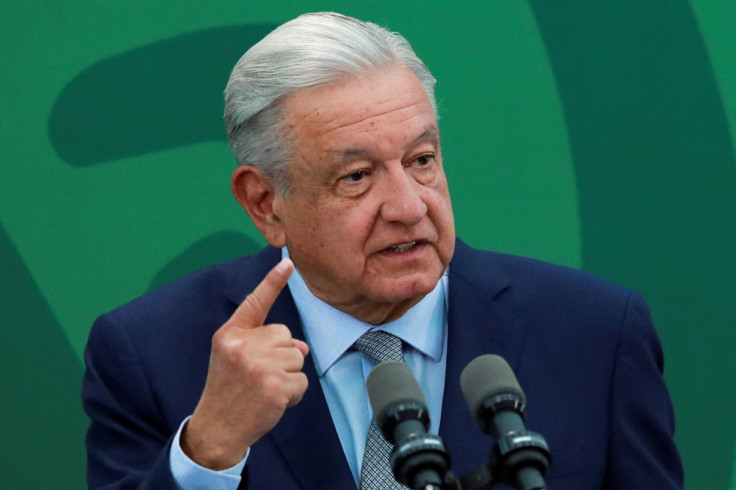
Arrests for illegal crossings into the U.S. through the southern border have dropped by about half in January compared to December, a record month where almost a quarter million people were apprehended.
The Associated Press noted that there was a 91% drop of Venezuelans attempting the cross, plunging from almost 47,000 to a little over 4,400.
The reasons for the overall decrease can vary and might not be indicative of a trend. The outlet highlighted that seasonality can play a role, with crossings increasing during warmer months in the Northern Hemisphere and decreasing during colder ones. Over the past two years, crossings have climbed by 40% between January and March.
Mexican authorities might be playing a role as well, following a series of high-level meetings with U.S. officials at the end of last year. Among the actions taken: they have been forcing migrants from freight trains they have used to get closer to its northern border, taking them back south via buses and carrying out deportation flights as well. Moreover, members of the country's military and national guard were patrolling the banks of the Río Grande in January.

Another factor could be a shift in migration routes. Even though figures decreased across the board, they did so significantly more in Del Río and Río Grande Valley, in Texas (76% and 60%, respectively).
According to to government figures reported by CBS, migrant encounters have largely concentrated in Arizona and California. The geographical change could be at least partially explained by hardline measures implemented by Texas' state government.
The Abbott administration has repeatedly clashed with the federal government over immigration enforcement, imposing unilateral measures such as the erection of barbed wire and the deployment of troops in Shelby Park, catalyzing legal battles as government officials were prevented from entering. The troops that answer to Abbott have been erecting razor wire fences despite a Supreme Court ruling that allowed the Biden administration to cut it down.
Although immigration law enforcement is under the jurisdiction of the federal government, Abbott claims the Biden administration has failed to enforce immigration law, leaving the state to fend for itself. Besides the aforementioned measures, Texas has sent thousands of migrants to Democratic-run sanctuary cities, New York, Chicago and Colorado among them, their leaders increasingly warning that their resources are strained.
Republican governors have rallied behind Abbott's efforts to deter illegal immigration. Last month, 25 of them released a joint statement, arguing that Texas has legal authority to defend itself because the Biden administration has failed to enforce immigration laws. Florida Governor Ron DeSantis, in fact, has sent National Guard troops from the state to Texas to aid Abbott in his effort.
Border security is at the forefront of the national conversation during the election year, with both parties crossing accusations about the way to address the issue. After Congress' Republicans rejected a bipartisan bill, claiming the compromise was insufficient after likely presidential contender Donald Trump blasted it, Democrats have gone on offense.
Senate Majority Leader Chuck Schumer called Trump's rejection of the border legislation "a gift" for Democrats and said they plan to "constantly over the next year" remind voters that Republicans tanked the deal. Moreover, the Biden administration is considering implementing executive actions to stem the flow of migration.
However, changing the existing perception about who's responsible for the current situation might prove difficult, as a sizable amount of the population believes that Biden is mishandling the surge of migration, citing this as the main reason why they disapprove of his work, according to a new poll by Gallup.
In fact, it's the issue that was cited the most among those who said they disapprove of him in the poll, with almost 20% of respondents. Economy-related issues followed suit, with 9% citing his handling of the economy and 5% mentioning inflation. Moreover, 4% cited foreign affairs in general as the main reason and 3% the Israeli-Palestinian conflict specifically.
© 2025 Latin Times. All rights reserved. Do not reproduce without permission.





